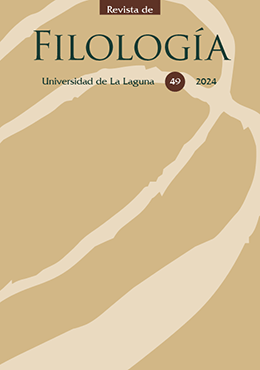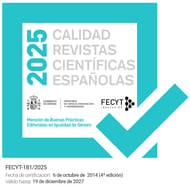Actitudes onomásticas y la paradoja de la libre elección del nombre
Resumen
Como un medio de protección de la dignidad de la persona, los tratados internacionales y las legislaciones nacionales buscan ampliar progresivamente la libertad en la elección de un nombre. Sin embargo, para regular la identificación de sus ciudadanos, los Estados necesitan establecer normas y condiciones para la asignación o cambio de nombres. Este trabajo tiene como objetivo analizar las actitudes de hablantes españoles hacia esta paradoja. El marco teórico se basa en investigaciones sobre actitudes, así como en estudios recientes de socionomástica. Los datos se recopilaron a través de encuestas orales realizadas en 2023 a 30 individuos, los cuales han sido estratificados en función de las variables de sexo y edad. Entre los resultados, se observa una desaprobación, particularmente por parte de las mujeres, hacia nombres con connotaciones sociales negativas, así como una actitud más positiva, en especial entre los más jóvenes, hacia nombres considerados neutros. Los datos permiten, además, establecer relaciones entre las actitudes y principios jurídicos tales como el superior interés del menor, la seguridad jurídica y el principio de libre elección del nombre.
Derechos de autor 2024 Eduardo Tadeu Roque Amaral

Esta obra está bajo licencia internacional Creative Commons Reconocimiento-NoComercial-SinObrasDerivadas 4.0.
Los trabajos publicados en esta revista son propiedad de sus respectivos autores y autoras, quienes conceden a la Revista de Filología de la Universidad de La Laguna el derecho de primera publicación, tal y como se recoge en nuestra Política de derechos de autoría.









